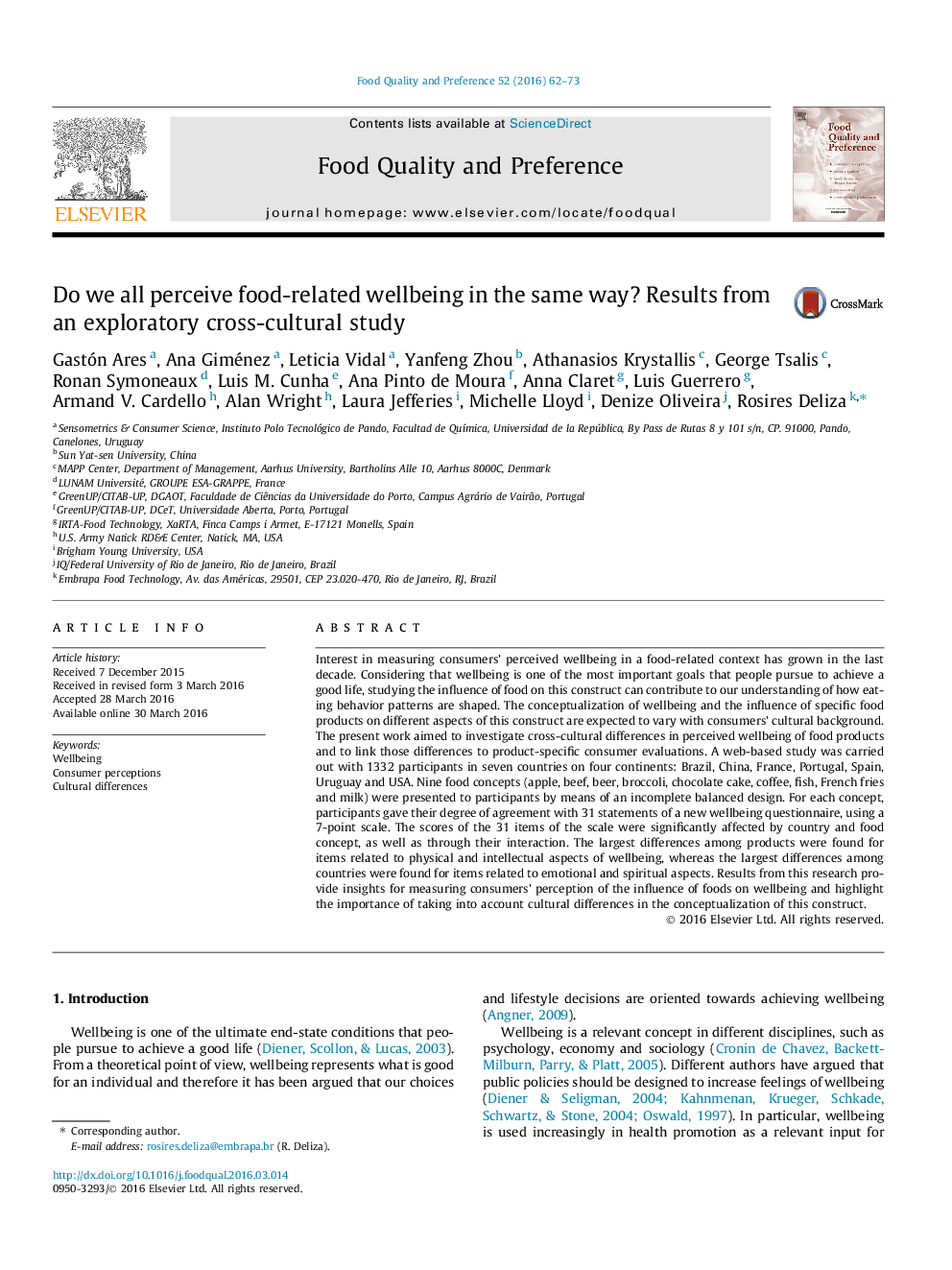| کد مقاله | کد نشریه | سال انتشار | مقاله انگلیسی | نسخه تمام متن |
|---|---|---|---|---|
| 6261025 | 1613147 | 2016 | 12 صفحه PDF | دانلود رایگان |
- Cross-cultural differences in how participants evaluated food-related wellbeing were identified.
- Participants in the seven countries mostly agreed on their evaluation of physical and intellectual aspects.
- The largest differences among countries were found for items related to social, spiritual and emotional wellbeing.
Interest in measuring consumers' perceived wellbeing in a food-related context has grown in the last decade. Considering that wellbeing is one of the most important goals that people pursue to achieve a good life, studying the influence of food on this construct can contribute to our understanding of how eating behavior patterns are shaped. The conceptualization of wellbeing and the influence of specific food products on different aspects of this construct are expected to vary with consumers' cultural background. The present work aimed to investigate cross-cultural differences in perceived wellbeing of food products and to link those differences to product-specific consumer evaluations. A web-based study was carried out with 1332 participants in seven countries on four continents: Brazil, China, France, Portugal, Spain, Uruguay and USA. Nine food concepts (apple, beef, beer, broccoli, chocolate cake, coffee, fish, French fries and milk) were presented to participants by means of an incomplete balanced design. For each concept, participants gave their degree of agreement with 31 statements of a new wellbeing questionnaire, using a 7-point scale. The scores of the 31 items of the scale were significantly affected by country and food concept, as well as through their interaction. The largest differences among products were found for items related to physical and intellectual aspects of wellbeing, whereas the largest differences among countries were found for items related to emotional and spiritual aspects. Results from this research provide insights for measuring consumers' perception of the influence of foods on wellbeing and highlight the importance of taking into account cultural differences in the conceptualization of this construct.
Journal: Food Quality and Preference - Volume 52, September 2016, Pages 62-73
